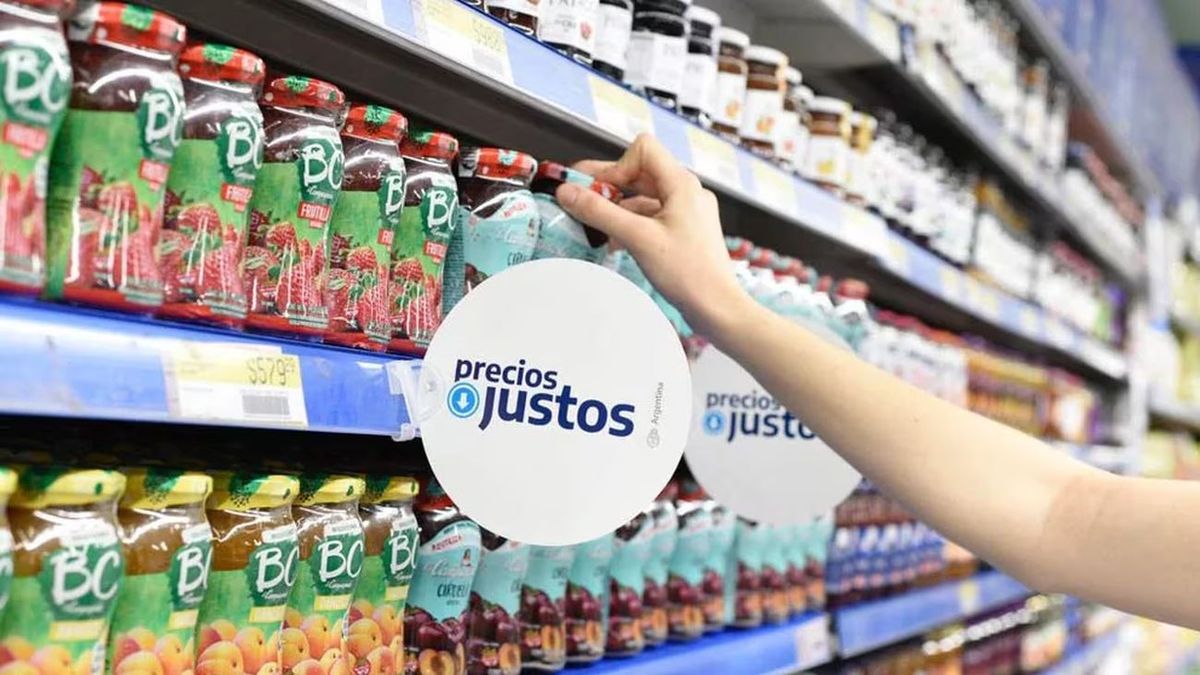He Ministry of Economywhich heads Sergio Massarenewed the 90-day price agreements in nine sectorsto try to contain an inflation that the consultants estimate in double digits per month, after the 22% devaluation of the official post-PASO exchange rate and the jump in financial dollars.
Fair Prices: what products will be reached
QThe following will be achieved in the Fair Prices program: footwear, cell phones, mass consumption, clothing, supplies distributed, motorcycles and white goods and small appliances. Last week they had closed with laboratories and oil companies for fuel. Each sector will have a differentiated scheme. In the midst of tough negotiations, the economic team had to implement a new strategy: it will apply reductions in at least four taxes and leave your commitment in writing through a decree to be published in the coming days in the Official Gazette, so that some companies that were reluctant to join.
price agreements will be extended for 90 days, until October 31, post general elections, but the increase percentages will vary according to the sector. For mass consumption, for example, there will be caps on increases of 5% per month. They signed the same with the national drug laboratories. With oil companies and refineries, a second increase for gasoline was agreed in August, of 12.5%, and then the freezing. According to the Ministry of Commerce, more than 350 companies are included.
Arduous negotiations
Fair Prices is the voluntary agreement that Massa launched at the beginning of 2023 to try to moderate inflation. The companies were renewing it through resolutions that they signed with the Secretary of Commerce, which in exchange put as “carrot” the facility to import through the SIRA system.
However, after the primaries the companies decided to adopt another position, according to private sector sources confided to Ámbito. The companies assure that the increases authorized by the Government do not cover the rise in costs that implied a 7% tax on imports and a 22% devaluation of the official exchange rate. They assure that the promises of access to dollars “were not fulfilled” and that the Government has “less back” to negotiate, after finishing as the third force in the primaries.
For this reason, Massa took another position to close the agreements. He directly cited the CEOs of consumer goods companies, oil companies and laboratories to the negotiations. And appointed in charge of the negotiations William Michelhead of Customs, through the creation of the so-called Price Agreement Negotiation Unit.
Initially, the companies summoned to the meetings in Economy were with proposals for increases that reached up to 25%. With no dollars to offer, with a Central Bank with negative reserves and an intensified electoral dollarization process, Michel offered a new “carrot”, this time prosecutor. And the commitment to formalize it through a decree.
According to official sources, the publication of the decree in the Official Gazette will take place this week. The novelty of the officialization via decree, unlike previous agreements, is explained to give it a more formal character, since it incorporates a series of benefits provided by the State, they indicated in Economy.
The draft of the decree, which circulated among the companies that will be included in Fair Prices, establishes that the subjects that comply with the price agreements may enjoy four benefits: 1) the suspension of the payment of the PAIS tax on imports; 2) the reduction to 0% in export duties for merchandise included in Mercosur tariff positions; 3) the suspension of an AFIP resolution, which allows companies that have non-perception certificates not to suffer VAT or Profit tax receipts and 4) the extension for social security tax maturities.
Negotiations were tougher than in previous editions. According to private sector sources, the supermarkets agreed to add their own brands to the list, but there were large food companies reluctant to enter some products. On Monday of last week in a meeting in the chamber that groups the food companies, Copal, they drafted a document to raise Massa. On Friday the multinationals came together again. They assure that there are items that do not represent benefits for them, such as the removal of the PAIS tax, since it was never implemented for the food chain. And that since July 15, the last renewal of Fair Prices, the devaluation exceeded 30%, so you can see “unfeasible” to put certain items with limits of increase of 5% per month.
Source: Ambito




